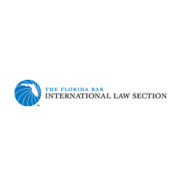Eleventh Circuit Gives Green Light to Broad Discovery in Aid of Foreign Bankruptcies
By Greg Grossman and Francis Curiel, Miami
The Eleventh Circuit recently affirmed a district court’s broad grant of discovery for use in five foreign bankruptcy proceedings to which the discovery applicant was a creditor-party. This article will briefly examine how the (relaxed) standard set forth by this Section 1782 proceeding compares to the (less relaxed) standard set forth by two notable Chapter 15 cases.
In re Petroforte, by now a well-known Chapter 15 case, involved the liquidation of one of Brazil’s largest gas and ethanol distributors. During the liquidation, the Brazilian trustee found evidence of fraudulent transfers made to several entities, which led the Brazilian court to extend the bankruptcy case to include the transferees. The Brazilian trustee commenced a Chapter 15 proceeding in the Southern District of Florida to seek discovery to assist the Brazilian liquidation. The discovery targets objected, arguing that the subpoenas sought broad financial information about the non-debtor targets that exceeded the limits of discovery under Section 1521(a)(4) and Rule 2004. When the court interpreted the scope of “debtor” under Section 1521(a)(4), it held, in part, that the entities that were subject to the Brazilian bankruptcy extension order were “debtors subject to Section 1521’s discovery powers; however, with regard to any third parties who were not subject to the extension order, the trustee was entitled to broad discovery only when the debtor was a majority stockholder in the non-debtor discovery target.
In re SAM likewise dealt with a Chapter 15 proceeding stemming from a Brazilian bankruptcy, wherein the debtor concealed corporate interests by transferring property to family members. The foreign representative sought documents relating to non-debtors who the foreign representative alleged were relevant to his investigation and potential recovery of assets of the foreign estate. The court focused on whether the foreign representative exceeded the proper scope of Rule 2004 discovery. It found that the foreign representative was entitled to discovery relating to (1) the transferees and (2) the non-debtor corporate entities in which the debtor had a majority interest or in those entities already found by the Brazilian courts to have participated in the debtor’s asset concealment scheme. The foreign representative was not entitled to discovery relating to the non-debtor entities whose connections to the debtor had not yet been established in the Brazilian courts. The court further noted that the foreign representative’s inquiries of non-debtors were to be narrowly tailored.
Notably, courts have analogized discovery under Chapter 15 with discovery under 28 U.S.C. § 1782. An incongruity may now exist when comparing Petroforte and In re SAM to the Eleventh Circuit’s recent case, In re Victoria.
In March 2018, Victoria, LLC (Victoria) filed a § 1782 application in the Southern District of Florida, seeking discovery for use in five pending Russian bankruptcy proceedings to which Victoria was a creditor. The bankruptcy proceedings pertained to either (1) Iliya Likhtenfeld (the Debtor) or (2) his Russian companies. Victoria planned to object to the dischargeability of debt, but first needed proof that the Debtor failed to disclose his U.S. assets in the Russian bankruptcies.
To do so, Victoria requested testimony and documents relating to corporate governance, banking, financing, money transfers, business transactions, accounting practices, and the like, from (1) the Debtor; (2) Florida banks with which the Debtor did business; (3) Florida entities that the Debtor allegedly owned or was affiliated with; and (4) individuals affiliated with the Florida entities. To support the existence of these affiliations, Victoria submitted Sunbiz corporate records. Some of these records showed that a woman—who lived at the same address as the Debtor—acted as (either current or former) manager and registered agent of two of the target Florida entities. Notably, the Debtor’s name appeared nowhere on the corporate records of these two Florida entities. Discovery was nonetheless granted for use in the Russian bankruptcies. The shared residence between the Debtor and the manager of these entities proved connection enough.
Moreover, in support of its allegations that the subpoena targets were “closely related” to the Debtor, and that the targets “should have documents and knowledge of assets tied to the Russian [bankruptcies],” Victoria created and submitted a chart showing that many of the Florida entities shared the same address, principals, and registered agents. The entities were thus alleged to be interrelated to each other, although not all directly related to the Debtor himself.
Victoria also submitted two noteworthy declarations in support of its Section 1782 application. The first declarant alleged “upon information and belief” that the Debtor had (1) caused his Russian companies to enter loan agreements with no intention of repaying; (2) failed to repay the borrowed money; and (3) transferred the borrowed money directly or indirectly to his family members or trusted representatives. Ultimately, the declarant “believed” that the borrowed funds found their way into the United States and were used, in part, to support the Debtor’s luxurious lifestyle in Florida. Neither the declarant nor Victoria submitted any other evidence to support these allegations or the connection between the borrowed funds and the Florida corporations. The second declarant stated that the Debtor had not disclosed any of his U.S. assets to the Russian bankruptcy court even though, “based on the [Sunbiz corporate records],” the Debtor owned and/or held officer positions in several Florida entities. Despite the tenuous connections between the Debtor and some subpoena targets, the court granted the broad financial discovery request with few limitations. The aforementioned evidence (or lack thereof) was enough for this grant of discovery to survive through the Eleventh Circuit, which upheld the district court’s ruling.
The disconnect between the above cases poses a noteworthy question—is the Petroforte limitation too narrow in light of the In re Victoria grant of discovery? Victoria, as a creditor seeking discovery assistance for use in foreign bankruptcy proceedings, was granted wide-ranging discovery relating to (1) the Debtor; (2) the Debtor’s banks; (3) non-debtor associates; and (4) non-debtor entities, some of which showed little to no relation to the Debtor besides a shared address with the entities’ manager.
The court did not inquire into the Debtor’s ownership interests (or transfer thereof). Nor did it probe into the foreign courts’ findings. Rather, the grant of discovery was based largely on uncorroborated beliefs and bare allegations. More so, it was based on reasonable suspicion that these target individuals and non-debtor entities were involved in the Debtor’s transfer of assets to the detriment of his creditors. In re Victoria has introduced a more relaxed standard that loosens the restrictions placed on discovery requests for use in foreign bankruptcies. In light of this recent development, perhaps it is time to reassess the scope of discovery in Chapter 15 cases, too.




Sequor Law es una firma internacional de abogados que representa instituciones financieras, gobiernos soberanos, empresas estatales, empresas públicas y privadas, profesionales de insolvencia y clientes individuales en las áreas de recuperación de activos, fraude financiero, insolvencia y litigios de servicios financieros.